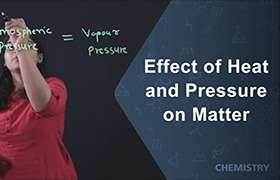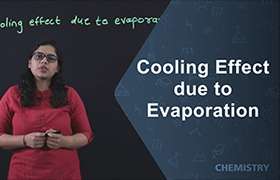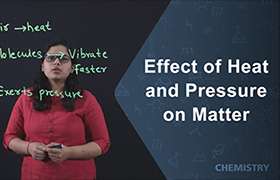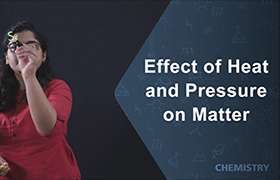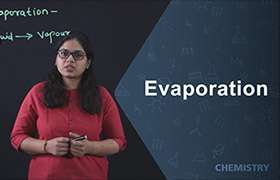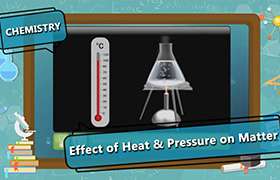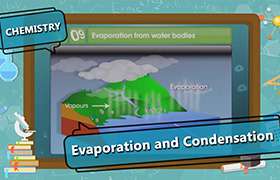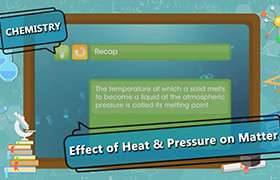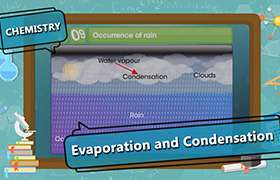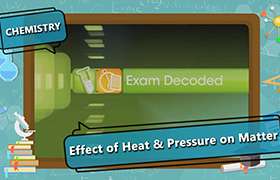CBSE Class 9 Answered
Temperature is a major factor responsible for causing a change in the various states of matter. The changes in the states of matter with increasing or decreasing temperatures can be shown in the form of the following figure.

Effect of temperature on the states of matter
On heating a solid substance, the kinetic energy of its constituent particles increases. As a result, the particles start vibrating with greater speed. This extra energy helps the particles to overcome the inter-particle force of attraction. Soon, they leave their positions and start moving more freely. Consequently, the substance melts. The change of solid state into liquid state is known as fusion. The minimum temperature at which a substance starts melting and becomes a liquid at atmospheric pressure is known as its melting point.
If heating is continued, then the kinetic energy of liquid particles increases further. This increases the velocity of the particles, and at a certain temperature, they obtain enough energy to break free from the force of attraction of the other particles. At this point, the liquid starts boiling i.e. starts changing into its gaseous state. This temperature is known as the boiling point of the liquid.
The latent heat of vaporization is the amount of heat required to convert a unit mass of liquid into its vapour state, without a change in its temperature. Latent heat of vaporization of water is 2,260 kJkg -1 .This means that 2,260 kJ of heat must be provided to convert 1 kg of water at 373K into 1 kg of vapour at 373K. Conversely, 2260 kJ of heat is released when 1 kg of vapour condenses at 373K to give 1 kg of water at 373K.
Conversely, when gas is cooled beyond its boiling point, it changes to its liquid state. This process is calledcondensation. When a liquid is cooled beyond its freezing point, it solidifies. This process is called freezing. The freezing point and boiling point of water are 273K and 373K respectively.
When a solid directly changes into its gaseous state on heating, the process is called sublimation. The reverse process is called deposition.

